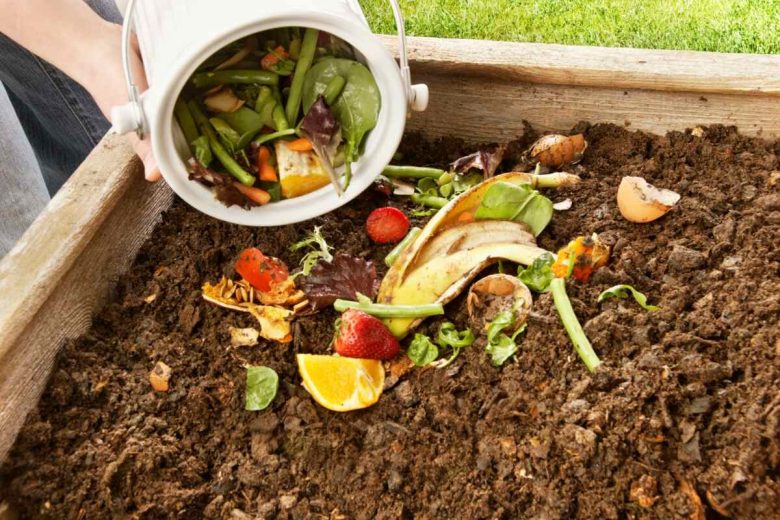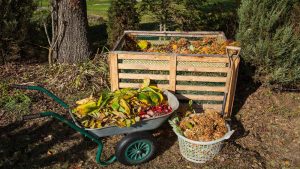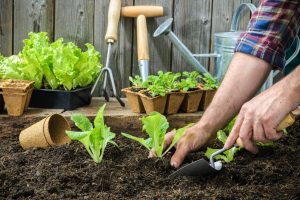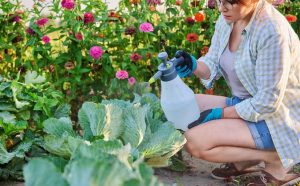Ever wondered about converting kitchen leftovers and garden residues into highly nutritious soil for your garden? Sounds cool, doesn’t it? But it is a zero-waste compost, which is healthy for the environment as it cuts down on the amount of waste that goes to landfills and also helps plants grow. Whether you are a seasoned gardener or someone new to all things green, by adopting this simple tip, you will be doing yourself and the planet a great deal of good. So no more garbage bags filled with organic trash; just have an ever-growing giving garden! Here are some fast tips for becoming an expert composter without generating waste.
Learn About Zero-Waste Composting
Zero-waste composting in gardening isn’t only a fad; it’s a way to live. The concept behind this approach is using renewable organic materials that form fertile humus. This ensures that plant nutrients are provided naturally as opposed to using chemical fertilizers. By minimizing landfill waste, zero-waste composting helps protect the environment. You don’t have to throw away food scraps or yard waste; you can turn them into useful garden material instead.
It is crucial to know how carbon-rich ‘browns’ (e.g. dry leaves) can be balanced together with nitrogen-rich ‘greens’ (e.g. peels). They make up an excellent home for beneficial microorganisms that live in abundance here. Besides improving soil fertility through this process, it enhances ecological balance as well. When growing healthy plants thus helping reduce greenhouse gas emissions, you cannot lose by choosing this method!
Why Zero-Waste Composting is a Good Idea
Zero-waste composting provides a long-term solution against the accumulation of decaying organic matter within landfills. This means instead of emitting greenhouse gases your kitchen scraps become nutrient-filled soil. Your garden will also benefit from this technique due to friendly microbes living in the soil. The plant’s health-friendly environment leads to increased yields and more colorful scenery.
Composting at home can save you money. By recycling your garden and kitchen waste, you will buy fewer commercial fertilizers over time. It also spares one from using chemicals that are not good for the environment. Another advantage is that it makes people conscious of their responsible consumption as a community. Talking to neighbors or getting engaged in a local composting initiative are great ways to look after the planet while meeting others who have the same views.
A Step-by-Step Guide
Choose an appropriate place where you want to put your compost bin. Find a sunny area with decent drainage. After that, prepare everything that you need. Green things (e.g., grass clippings and peelings) along with brown ones (e.g., dried leaves, cardboard) can be mixed. This balance is what makes healthy composts work well for plants since this is an excellent medium for the growth of beneficial microorganisms inside them.
Use a pitchfork or shovel to turn the pile regularly. This can be sped up by adding oxygen and aeration. Always check out moisture; just picture a sponge that is just right: not too wet nor too dry. Mulching your compost prevents heavy rains from washing it away, while also keeping the required level of moisture. When hotter, the pile breaks down more quickly. You’ll find rich, dark soil after a few weeks or months. This is your homegrown gold!
Troubleshooting Common Composting Problems
Sometimes things do not go well during composting. Usually, hard-to-melt composts are either too wet or have insufficient green and brown matter in them. Dry materials like leaves or shredded paper can be added to absorb excess water in the compost heap. Slow decomposition is another recurring problem that might arise due to a lack of sufficient air circulation in the heap. Turning the pile over frequently introduces oxygen into it thus greatly accelerating the process.
Ensure there are no meat or dairy products in your compost pile if you notice bugs around it. These attract unwanted pests and can disrupt everything else going on there! Also, take note of temperature changes! Hot piles decompose stuff faster than cold ones do; turn yours often when it cools off by adding fresh kitchen waste.
Use Compost in Unique Ways in Your Garden
Gardeners have a secret weapon which is compost that improves soil and helps plants grow well through good nutrition from organic matter accumulated within its structure over time as they break down into humus thus making thin layers work better even for harsh climates where they are otherwise ineffective because they evaporate very quickly under direct sunlight without leaving behind any residues that would retain water inside their cells causing wilting symptoms related with drought (Fisher et al., 2018). Mix this into your garden beds before planting something there so that nutrient content will increase whereas seedlings will sprout fastly then keep adding it on top of existing plants throughout the growing season because the thin layer around their roots holds moisture back from being lost through evaporation while preventing the growth of unwanted weed species.
Compost tea is the fertilizer that can be used naturally. Water is soaked into compost for several days and the dark liquid with lots of nutrients is then poured onto plants. One can also make vermicompost by putting kitchen scraps in a worm bin which acts as a good medium for container gardens or potted plants since it is rich in nutrients. Don’t forget about the path! To avoid garden paths becoming muddy, sprinkle them with compost. This will put organic matter back into your soil over some time.
Conclusion
Creating a compost pile without throwing anything away will not only transform your garden but also the way you think about waste. It makes you watch food scraps turning into nutrient-packed soil. Any little bit helps to reduce landfill damage. Each layer of compost speaks volumes about our environmental consciousness and sustainability practices. You will mess up it’s part of the process though! Find what works best for you and adapt as you learn along the way. There is no greater pleasure than nourishing them with your homemade manure or fertilizer produced from the above-mentioned materials (Saidisingh et al., 2017). Your garden will grow beautifully and you’ll be doing something good for the health of the planet. Small changes today can alter how we live in our space forever.
FAQs
1. How long does it take to have mature compost?
The amount of time required for compost to fully mature varies between three months and two years depending on factors such as materials used and weather conditions
2. What about the inclusion of meat and dairy in compost?
If you are doing home composting, then stay away from including any meat products or any dairy as these attract pests and make your compost stink. The best remains that the plant materials should be used.
3. Do I need specialized tools for home composting?
No special equipment is required. Starting with a simple heap or bin made from old containers is easy. On the other hand, a good composter can speed up the process.
4. What if my compost smells bad?
Bad smells typically happen when there’s too much nitrogen-rich material (such as food scraps) or inadequate airflow around the pile. To achieve balance, adding things like carbon-heavy dry leaves and regular turning may help.
5. Can I buy soil conditioners instead of making my compost?
You can buy finished compost at nurseries, but using your homemade additives would make more sense for enhancing your garden as well as reducing waste and it is free!
6. Can I put garden waste in a composter?
However, avoid using plants with diseases and weed seeds that will spread when you put them back into the soil. Most garden wastes are applicable for amalgamation.




